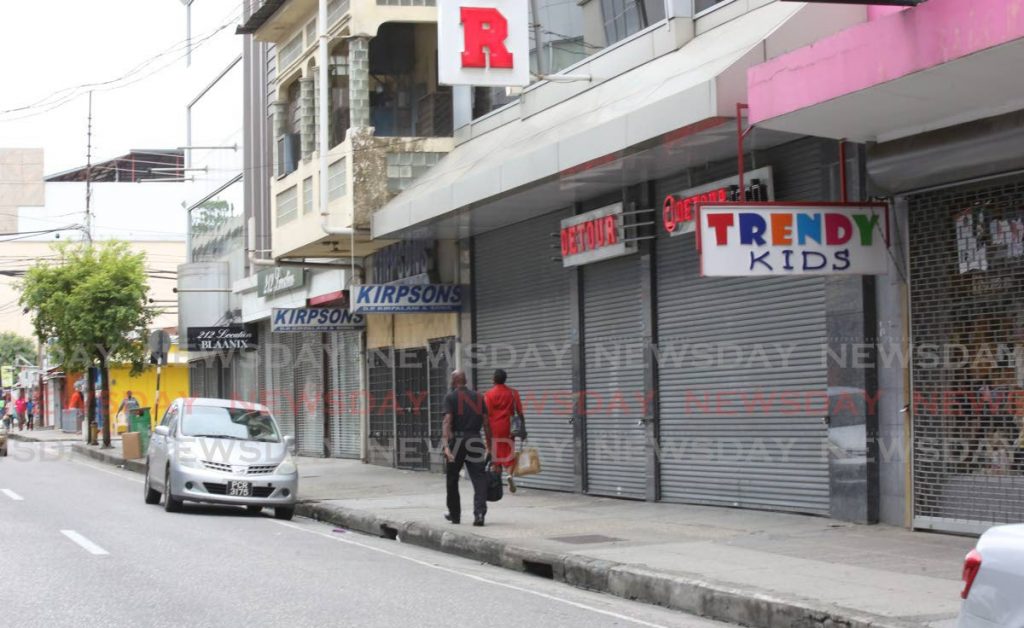The hidden pandemic exposed by covid19

RISHI MAHARAJ, executive director, EquiGov Institute
“All animals are equal, but some animals are more equal than others.”
One book that has stuck with me over the years is George Orwell’s Animal Farm, from which the quote above is taken. In essence, the sentence is a comment on the hypocrisy of governments that proclaim the absolute equality of their citizens but give power and privileges to a small elite.
Whether good or bad, purposeful or not, covid19 has painfully exposed for all to see the existing and persisting inequalities in our societies. It is fair to say that this pandemic will have the heaviest impact on the lives of people living in deprivation or facing difficult socio-economic circumstances.
People in poorer circumstances are at most risk not only from the virus but from the other unintended consequences of measures taken by governments because of it.
They may be unable to self-isolate due to insecure labour conditions which do not allow for teleworking or provide statutory sick or care leave. They may also live in closer proximity to each other and are more likely to experience overcrowding.
In both the short and long term, they are more likely to experience unemployment and financial insecurities and are more vulnerable to labour market fluctuations resulting from macroeconomic changes.
Owing to actions taken by government (because of increasing infection rates and demand for hospital beds), there has been massive disruption to the way businesses operate.
However, not all businesses are created equal and even the implemented restrictions had an aspect of inequality, as the impact across industries varied. Many in the retail, arts and entertainment, personal services, food services, and hospitality businesses all experienced declines in sales, due to either partial or total lockdown, while in contrast finance, professional services, and real estate-related businesses experienced less disruption, as these industries were better able to move to remote production.
Many businesses have indicated that they either have been or may be forced to close even after restrictions are lifted. According to a survey by the Confederation of Regional Business Chambers some 5,000 businesses have closed in TT over the last 12 months since the pandemic hit. Of course, closure of businesses also means the loss of jobs, and the loss of jobs, for an economy that was in a crisis entering the pandemic, spells other unintended consequences.
Although we lack proper data here in TT to provide any meaningful analysis, it has been estimated worldwide that:
• One in two people have lower earnings owing to the pandemic and people in lower-income countries were affected the most, according to a global poll.
• Women were hit particularly hard as they are over-represented in low-paid precarious sectors such as retail, tourism and food services.
• More than half of people surveyed said they temporarily stopped working at their job or business, translating to about 1.7 billion adults globally.
A recent survey by the Pew Research Center found that, overall, one in four adults have had trouble paying their bills since the coronavirus outbreak started, a third have dipped into savings or retirement accounts to make ends meet, and about one in six have borrowed money from friends or family or got food from a food bank. It does not take a stretch of the imagination to see that although this research was done in the US, many of us by now either know of families or have assisted families facing this situation.
The global impact of the pandemic on the poor is expanding daily owing to job loss and other shocks to income and diminished livelihoods. The most vulnerable portion of society includes poorer households and those dependent on informal employment. It includes casual day labourers, small-scale producers, minimum-wage earners, the self-employed, etc, and many more who have less access to social protection because of a smaller amount of savings or limited alternative sources of income.
It is clear that the pandemic is creating the worst humanitarian and economic crisis in a generation, threatening the lives, livelihoods and learning of people around the world. Government leadership is crucial, but companies and civil society organisations also have a vital role in working together to respond to the immediate crisis and develop plans for longer-term recovery and resilience. This includes the urgent need for concerted action to support the most vulnerable people.
The hidden inequalities in societies have now been exposed and we are now at a moment in time where actions taken now can affect the livelihood of thousands in TT and billions around the world.
In my next column I shall examine one approach which has been presented as a alternative to our current way of business and which can play a role in minimising the effects of inequalities that now exist.
Equigov Institute provides consultancy, training and research in data privacy/protection, governance, information access, transparency and monitoring and evaluation.


Comments
"The hidden pandemic exposed by covid19"